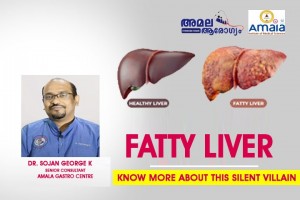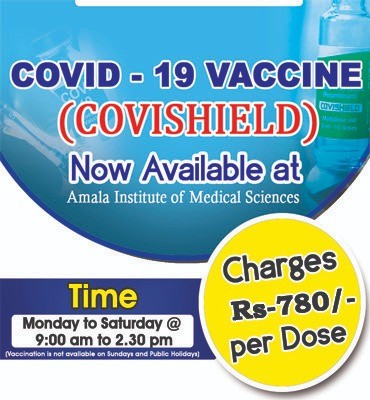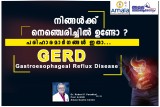What is GERD or Gastro-Oesophageal Reflux Disease ?
It is a condition in which the acid in the stomach regurgitates into the esophagus and affects the quality of life. Gastroesophageal reflux itself is not a disease and occurs multiple times each day without producing symptoms or mucosal damage. If a person has heartburn and or acid regurgitation with symptom duration of atleast once a week for one month we can assume that this person is having GERD. In our society about 10 to 12% of people are having this disease.According to reports from Trivandrum the prevalence can be about 22%
What are the mainsymptoms
Heartburn and /or acid regurgitation and water brash are the classical symptoms. Apart from these many people have atypical symptoms. Some people have chest pain [Non Cardiac Chest Pain], GERD-related chest pain may mimic angina pectoris, having a squeezing or burning quality, being substernal, and radiating to the back, neck, jaws, or arm. It frequently is worse after meals and may worsen during emotional stress. Reflux-related chest pain may last for minutes to hours, often resolves spontaneously, and may be relieved with antacids .Others have a nocturnal cough, abdominal distension and asthmatic symptoms.Some have laryngitis chronic cough ,recurrent pneumonitis anddental erosions disordered sleep and hoarseness of voice. Some others have Globus sensation.It is afeeling of something stuck in the throat but no difficulty in swallowing food. Thus this disease can manifest in different ways .The estimated prevalence of GERD in asthmatics is between 34 and 89%
Why this reflux?
There is a sphincter at the junction between esophagusand stomach - Lower Esophageal Sphincter {LES} This prevents the regurgitation of acid into the oesophagus. This sphincter can be lax in some people -Lax LES Few people have gap at Lower EsophagealSphincter. This is called Hiatus Hernia. This can also contribute to GERD. This sphincter can relax transiently in all people.tTLESR transient lower Esophageal sphincter relaxation.tTLESRs are not always associated with Gastroesophageal reflex.In normal subjects 40 to 60% tLESRs are accompanied by reflux episodes compared to 60 to 70% in GERD patients. In a hypotensive or lax LES refluxes can occur when there is an abrupt Increase in abdominal pressure from coughing sneezing or bending and acid reflux can cause symptoms.
How can we control the GERD.
By lifestyle modification we will be able to control the GERD to a great extent.
1.To take food at the proper time
2 . To avoid overeating .If one eats too much of food ,it produces distention of stomach.This in turn will stimulate and increase the tLESR
3. Chew the food slowly and completely
4. Avoid oily spicy fatty and fried foods. This type of food will relax the LES and increase the episodes of tLESR
5. Certain fruits especially citrus fruits can worsen GERD.
Avoid or reduce intake of oranges ,grapes lemons and pineapple
Avoid aerated drinks , vinegar, tomatoes ,sauce,chocolatesetc.Many people think that if they take soda they will have relief after belching.This is not true.This contains dissolved carbonic acid and will not help.
Avoid strong coffee and tea.
6. When you sleep keep the head end of the bed elevated by 6 to 8 inches or one
can use a a form wedge under the mattress to elevate the upper torso. No benefit by raising the height of the pillows or usingtwo pillows
7. Wear loose fitting nightwear
8. When you go to sleep ,lie in a left lateral position.This will make the junction of the stomach and oesophagus at a higher position and dependent fundus of the stomach at a lower position .
9. if overweight , weight reduction will reduce reflux.
10.Smoking and alcohol reduce LES pressure. So avoid them.
By instituting these lifestyle modifications one can control GERD symptoms to a certain extent. If symptoms persist one should consult a doctor Apart from medicines sometimes endoscopy will be required. Early endoscopy will be required in patients with alarm symptoms like dysphagia [difficulty in swallowing], odynophagia [painful swallowing],recent onset of symptoms,weightloss,GI bleed, anaemia ,age >55 years and also if there is a family history of upper gastrointestinal malignancy.







